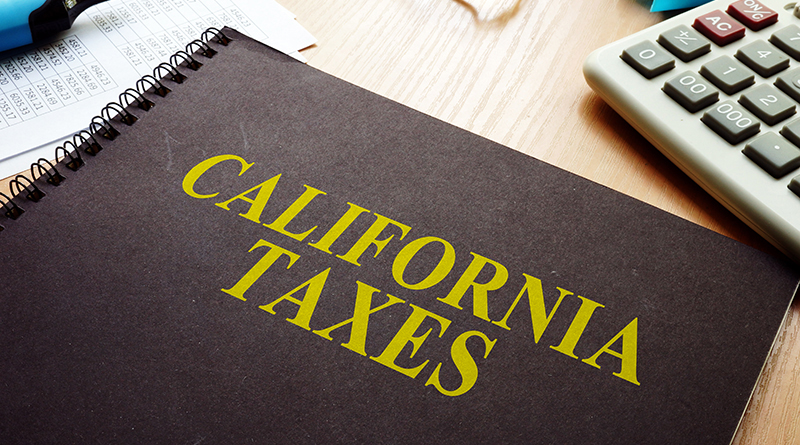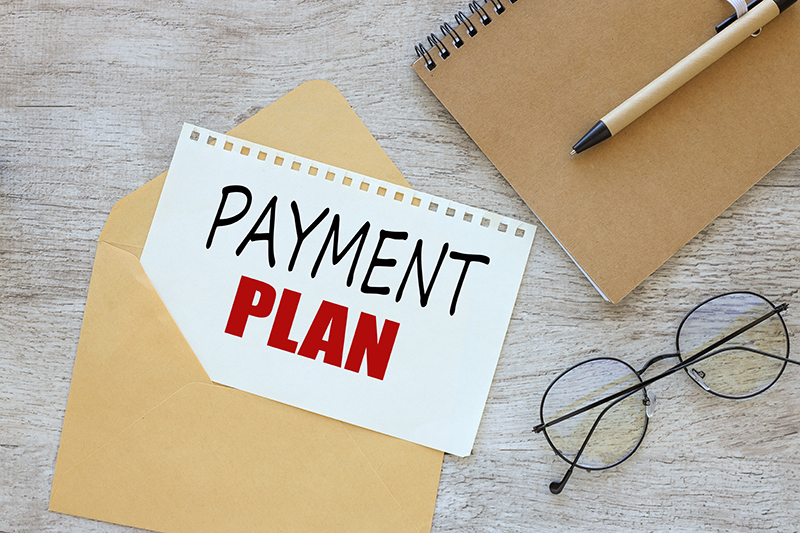I owe California (CA) state taxes and can’t pay. What do I do?
February, 07 2020 by Jean Lee Scherkey, EA
Getting a bill from the California Franchise Tax Board (CA FTB) is an awful lot like receiving a confirmation from the Bates Motel about your upcoming stay, especially when you can’t pay the balance due. Knowing your bank account is emptier than the crock of cocktail weenies after the big game, you check your pockets and turn over the cushions on the couch to find just enough lint to make a respectable dust bunny. So, what do you do when the state comes knocking for their due, and you cannot pay?
When it comes to unpaid California income tax liabilities, the CA FTB generally has twenty years to collect the debt. Yes, you read that right. The time the CA FTB has to collect unpaid state income taxes is longer than the time an infant has to become a legal adult in the U.S. Now, don’t book your ticket on the next jet plane out of the state, for all is not as grim as it seems. There are options available to those who cannot pay their taxes in full by the deadline.
Collection Delays: Taxpayers may request a thirty-day extension to pay their tax due in full by contacting the CA FTB.
Informal Installment Agreements: In some cases, taxpayers may request a ninety-day extension if they can pay the tax in full within this timeframe. This option can be requested by contacting the CA FTB by phone. Although this option is called an informal installment agreement, it works more like a collection delay. If approved, the CA FTB will place a ninety-day collection hold on the account. However, if the taxpayer does not pay the entire balance due within this period, the account will automatically be transferred to collections.
Installment Agreement: If a taxpayer owes $25,000 or less and can pay the full amount within 60 months (five years), then they can request a monthly installment agreement. Depending on your situation, the CA FTB may require you to provide financial information about your living expenses and may even file a lien on one of your assets. The most common piece of property the CA FTB liens is a taxpayer’s home. Once the amount due is paid in full, the CA FTB will generally lift the lien. The CA FTB may allow an installment agreement if the taxpayer owes more than $25,000. However, generally, the CA FTB will require more financial information from the taxpayer, and if the taxpayer owns a home, likely place a lien on it.
Partial Payment Installment Agreement: If a taxpayer is financially unable to make monthly payments high enough to pay the total tax owed within a traditional installment agreement time period, the taxpayer may qualify for a partial payment installment agreement. The CA FTB will assess how much the taxpayer can pay per month based on their financial situation. Monthly payments will be made until the debt is paid in full or the statute of limitations runs out, whichever is sooner. The CA FTB will review the taxpayer’s financial status every two years to check their ability to pay. If the taxpayer’s financial status improves, the payments may increase and vice versa.
Offer in Compromise: Taxpayers can also request an offer in compromise from the CA FTB. In an offer in compromise, the taxpayer will request the CA FTB to accept a tax payment that is less than the balance due. When negotiating an offer amount, the CA FTB will take into consideration the taxpayer’s age, overall health, ability to pay, future earning potential, and what is in the best interest of the state. Before the CA FTB will consider an offer, the taxpayer must be current with all of their filing requirements.
Discharge in Bankruptcy: To discharge delinquent state taxes in bankruptcy, the taxes must have been properly assessed by the CA FTB at the time the taxpayer files for bankruptcy. Taxpayers can run into trouble when attempting to discharge state taxes as often state tax assessments are based on changes made to the taxpayer’s federal return. Taxpayers are required to report to the CA FTB any changes made to their federal income tax return within six months of the change. Often taxpayers overlook this step, which means the additional tax from the federal determination has not been properly assessed by the CA FTB. Generally, if the tax has not been assessed by the CA FTB, the CA FTB will not acknowledge the discharge.
Innocent Spouse Relief: When married and California registered domestic partners file joint California returns, each spouse/partner is jointly and severally liable for the tax due. This means the CA FTB can collect the tax from either spouse/partner, even if the tax and associated penalties and interest were generated by the acts of one of them. Depending on the facts and circumstances, a spouse/partner may be able to request relief from paying the tax due. There are several categories of innocent spouse, and the rules can become complicated.
Discharged and Extinguished Debts: If the CA FTB determines that a taxpayer has no means to pay the tax due and will continue to have no means to pay in the future, the debt becomes uncollectible and discharged. The State Controller approves discharges. If the taxpayer owns a home or other asset, the CA FTB may place a lien on the property at the time of discharge. When the debt is in “discharge” status, the CA FTB will stop any further collection actions against the taxpayer. Some of the reasons the CA FTB may discharge a debt is when the taxpayer becomes permanently disabled, becomes retired and living on a very limited set income, the taxpayer dies, or the taxpayer has fled the state, cannot be located, and has no assets in the state, or the tax due was discharged in bankruptcy. A discharge does not mean that the taxpayer is still not responsible for paying the tax due. Additionally, interest and penalties will continue to accrue until the collection statute of limitations has passed. However, a discharge does prevent collections from continuing to demand payment or levy the taxpayer’s bank account, wages, or other assets. Only when the tax due (including interest and penalties) is extinguished will the taxpayer be released from the debt and no longer responsible. For a tax debt to be extinguished, the CA FTB must no longer be held accountable to collect the debt from the taxpayer, and the taxpayer’s remaining tax debt is less than $500. The tax debt can also be extinguished if the taxpayer has been deceased for more than four years and the deceased taxpayer’s estate does not have an active probate with the state of California. Additionally, if the CA FTB has concluded that the taxpayer has a permanent financial hardship and will not be able to pay the tax due now or in the future, or the tax due has not been unpaid for over thirty years, the debt may be extinguished.
For all the options above, a good line of communication with the CA FTB is critical. Lack of communication can lead to unwanted consequences such as a levy against your bank checking and/or savings account, wages, IRA account, any investment accounts, payments you receive as an independent contractor, and in severe cases the suspension of a taxpayer’s professional, occupational or state driver’s license. If you enter into a payment agreement with the CA FTB and your financial circumstances change to a point you are unable to make the agreed-upon payments, it is important to contact the CA FTB immediately. This communication could make the difference between dealing with a bank or wage levy or negotiating with the CA FTB for a lower payment plan or even having the debt considered currently uncollectible.
If all of this sounds overwhelming and you are ready to run to your favorite watering hole for sanctuary, there is no reason to fret because help is just a click or a phone call away! The compassionate and knowledgeable tax professionals at TaxAudit’s Tax Debt Relief Assistance will provide you with an honest assessment of your tax situation and vigorous representation to negotiate the best solution possible.





